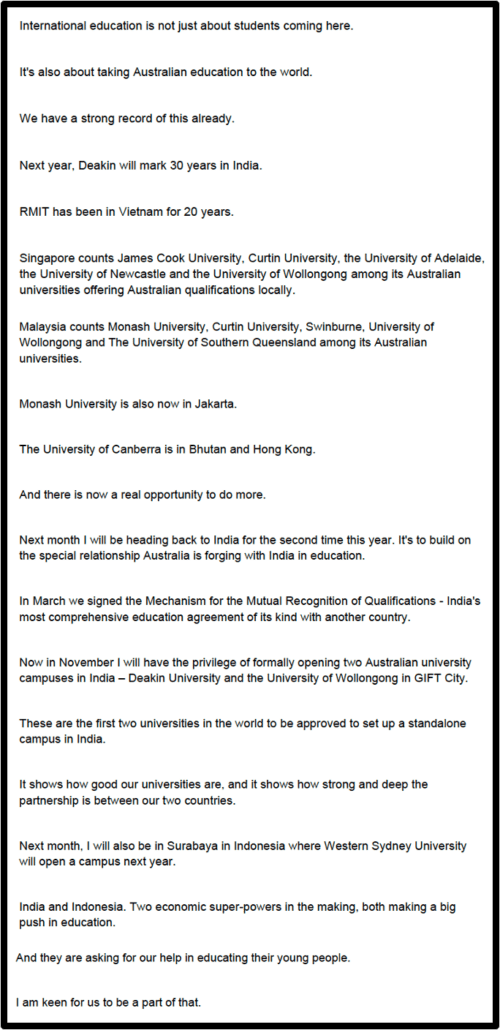
Transnational VET in South East Asia – what is Australia delivering?
In his speech to the 2023 Australian International Education Conference (AIEC) the Minister for Education, Jason Clare, spoke fulsomely about the extent of transnational delivery in the higher education sector. He noted that:

Speaking at the AIEC conference the day after the Minister, as part of a panel discussing “The Power of Skills in South-East Asia”, I had a less positive picture to share of the transnational activity of Australian VET providers.
The latest data from the NCVER’s Total VET students and courses collection[1] shows that over the last five years formal VET delivery (ie qualifications and units of competence) has been dominated by TAFE Institutes.

To provide some further context:
- in 2021 (the most recent data for the higher education sector), Australian higher education providers enrolled 182,536 students offshore (11% of all higher education students). By contrast the VET sector enrolled just 26,060 offshore students – just 0.6% of the 4.3 million students who enrol in VET each year, and
- some of the undercount in Australian VET TNE numbers is because both private providers and TAFE Institutes also offer non-accredited training in offshore locations – and this data is not required to be included in the national VET statistical collection.
If the overall level of VET activity looks low, the reality is that almost half of all offshore Australian VET students are in China where many TAFE Institutes have partnerships.
In South East Asia the number of students enrolled with VET providers in the last five years is miniscule, except in Vietnam:

Why is that?
In part it’s because of the earlier success of Australian VET providers and Australian government efforts which have helped South East Asian countries build their own VET systems. And the ASEAN TVET Council is now in place and helping further strengthen the VET systems of ASEAN countries.
The brilliant SEA-VET website (https://sea-vet.net/) is a treasure trove of information on everything happening in each VET system in each country in ASEAN. A must read for Australian VET providers interested in operating offshore.
So one reason why Australian VET providers are not enrolling large numbers of students in TNE programs in South East Asia is because these countries are increasingly able to deliver VET programs at scale themselves (often modelled on the Australian VET system).
The second reason relates to the lack of a wage premium for students in the region from studying an Australian VET qualification. That is, it costs much more to study an Australian VET qualification rather than a local alternative, but the wages on offer to VET graduates are not noticeably higher for those with Australian qualifications – unlike in higher education where an Australian qualification does attract a higher salary on graduation.
So does that mean there are no opportunities in South East Asia for Australian VET providers?
On the contrary – opportunities exist in key industry sectors (digital, green skills, the care sector and Industry 4.0) but they lie with delivering skills to employers and their workers, or in partnering with local VET providers, rather than in trying to deliver directly to students.
Short courses, non-accredited programs and industry-certified programs all present good opportunities for Australian VET providers in South East Asia.
And now borrowing from a slide compiled by fellow panellist, Rebecca Hall, here’s “where to play, who pays and how to win” with an additional observation from me – to think creatively about the opportunities!

———————-
My thanks to the Chair of the Panel, Jana Pereira (Monash College), and fellow panellists Rebecca Hall (former Victorian Commissioner for South-East Asia), and Prashil Singh (RMIT University).
[1] This NCVER data is regrettably not publicly available. I paid for this analysis of the 2022 NCVER data as a special request. I think it would be good to see the data made publicly available each year – either on the NCVER, the Department of Education or the Austrade websites – to help inform VET providers considering TNE opportunities. Previously the data was available on the Department of Education’s website up to 2019.




